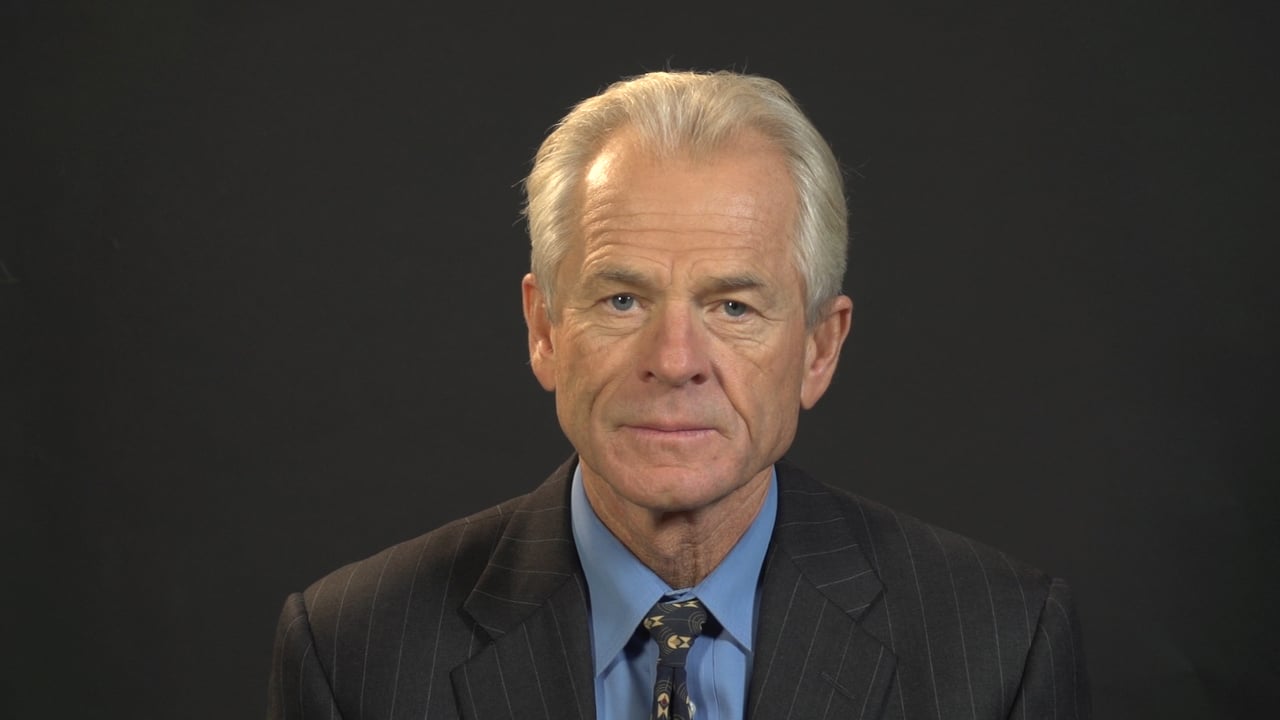
On Wednesday, Trump nominated hawkish scholar Peter Navarro, a critic of China, to lead the newly created White House National Trade Council. Navarro’s public image has largely been created by his three published books about China: “The Coming China Wars,” “Death by China,” and “Crouching Tiger: What China’s Militarism Means for the World.” The New Yorker magazine wrote that it would be hard to find another economist in America who is as radical as Navarro on issues such as trade and policy toward China. Trump’s nomination of Navarro is believed to be a signal that Trump is pushing his “U.S interests first” policy. It is possible that in the future, America may adopt impulsive trade protectionism policies and trigger a change in the structure of benefit distribution in the U.S. and other countries.
Navarro advocates strengthening the defense of Taiwan; he also invited exiled Chinese pro-democracy supporters in America to write prefaces to his books. According to general Chinese opinion, the majority of people would be willing to call him “anti-Chinese.” Can a man such as this, in the position of the White House National Trade Council leader, intensify Trump’s prejudice toward China? Can he provoke more friction within U.S.-Sino trade relations, or even the entire U.S.-Sino relationship?
First of all, we should recognize that Trump trusts this scholar who holds extreme views on China. Their attitudes toward China will likely reinforce one another from now on, and this is not a good sign for U.S.-Sino relations. China must grasp the reality of the Trump team’s unyielding attitude toward China, hold no delusions, and be fully mentally prepared to meet the “offensives” of Trump’s government.
Secondly, Trump’s nomination of Navarro does not necessarily mean he favors Navarro’s “anti-Chinese” beliefs. Trump’s most important goal is to revive the American economy. Trump mistakenly believes that the depression of the American economy and the slump in the American manufacturing industry of recent years is due to globalization, and that China stole its boom from America. What Trump wants is total reform; therefore, he will target all economic systems, including plundering America’s allies.
Thirdly, Trump’s team has a “small coal mine” mentality; it is shortsighted and profiteering. Trump doesn’t want to create any collisions of strategy or topple any systems, and it doesn’t seem like he has any real interest in ideological battles, but he covets the benefits thereof. All this could influence the way in which China and the U.S. deal with each other, and affect the friction between the two countries.
Fourth, China is strong enough to stand up to pressure from Trump’s government; we will not yield, and Trump will have no way of making us do so. The U.S.-Sino relationship has become more outwardly strained, and the friendly atmosphere has been squashed, but this is not something extraordinary. We will adapt and it will be fine. In the event that Washington provokes China on our core interests, we will counter it directly; it will not be a win-win situation, Washington will lose and will be forced to show respect to China.
Fifth, in the course of everyday friction, China must make it clear as to exactly what it is competing over with America. Both countries are competing over their respective domestic economic development and social solidarity. When Trump enters office, he will once again raise the flag of American manufacturing; this reminds us that a manufacturing industry is fundamental to a nation. In the past we have won the manufacturing industry, and in the future we must absolutely not lose the cards we currently hold — China must not turn into a country that lets its manufacturing industry slip away. Our manufacturing industry needs upgrading and optimizing, but it also needs to continue to expand; it cannot gradually wither.
Sixth, due to the reasons mentioned above, and to settle the question raised by Cao DeWang, the response to having Navarro at the White House could lead to even more turmoil. Looking at it objectively, as long as China’s economy is strong, Chinese people will have enough confidence to withstand worries over external threats. Whether it is confronting the Taiwan issue, the issues in the South China Sea, or other challenges, China’s policy must ultimately come down to maintaining national development.
Trump’s team has unceasingly expressed its determination, and articulated the prestige that comes with manufacturing, but it does not have the additional resources the previous White House team had for its ambitious plans. Unless Trump’s team wishes to start a world war, to brandish cruise missiles, or to send aircraft carriers all over the world to go looting, it will have to return to the pre-existing rules of international trade. We have full confidence that America today is unable to steal from China. We also believe that America is able to correct its errors without going so far as conniving to completely upset the world order, and thus ultimately harming American foreign policy and, by extension, the interests of the American people. There can be no turning back on an already globalized world.

Leave a Reply
You must be logged in to post a comment.